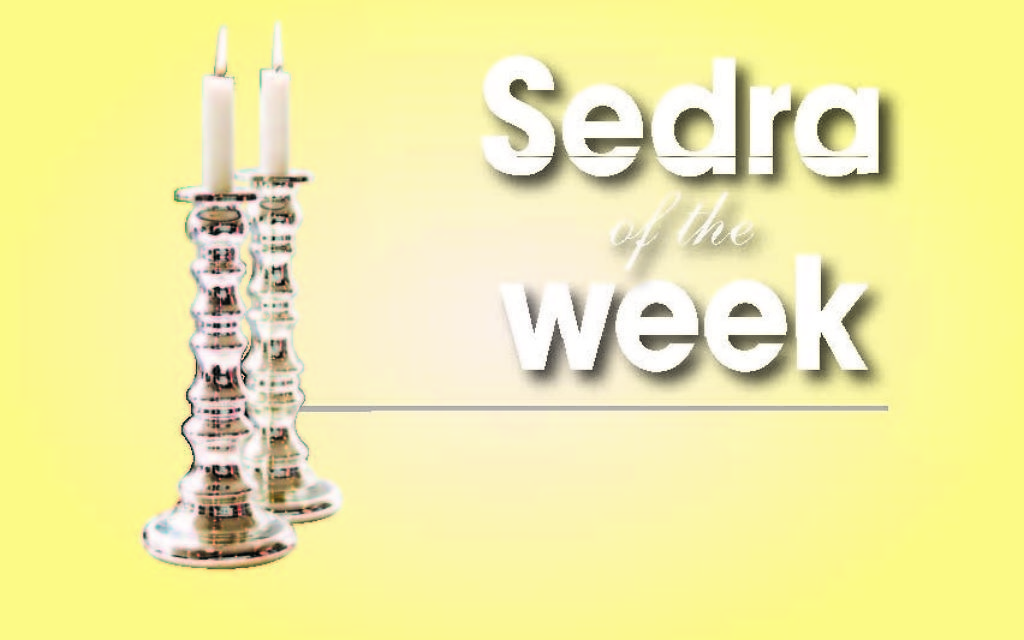Sedra: Shoftim
By Rabbi Moshe Mayerfeld
The tragic and untimely passing of Robin Williams raises many important issues which society is dealing with.
Williams inspired so many through his work and gave pause for thought in his death. Perhaps he is best known for teaching a whole new generation the meaning of the Latin words from the poet Horace – carpe diem (seize the day).
Get The Jewish News Daily Edition by email and never miss our top stories Free Sign Up
This lesson is crucial. In fact, it appears in our parsha, written almost 1,500 years before the Odes. We learn of the prohibition of making a matzevah or pillar; a tall single stone – even in our service to God – for it is hated by the Creator.
The great medieval commentator Rashi explains that even though it was endearing to God during the days of our forefathers, since it had become the way of the Canaanite idolaters, we are required to stay away from its use.
This is rather hard to comprehend when you compare it to many other things, such as an altar that the Canaanites use as well, yet we are allowed to use an altar in the correct context. It appears the difference is as follows: a pillar is of a fixed size.
It may be tall in structure, but it cannot change or grow in its form. An altar is made from many layers of stones, bricks or even earth. This symbolises the various levels of achievement one can accomplish. One can keep building and growing, adding ‘stones’ to his life’s path.
One must realise that every road leads us to potential for greater spiritual progress, a constant battle for increased sanctity. Indeed, that type of symbol is beloved by God. Something that represents spiritual status quo, something that holds people to being static and stable, that is the path of an inanimate god. It is likened to the Canaanite idol worship, and is hated and forbidden.
This is also the reason that, after someone passes on from this world (you should all be blessed to live until 120), we refer to the stone placed on one’s burial place as a matzeva, to indicate that one has attained his maximum degree of achievement in this world and it is no longer possible to go higher. However, during one’s life, the Torah implores us to be a mizbeach, an altar, constantly growing, striving to be better each day. Carpe diem.
• Rabbi Mayerfeld is Director of Aish UK and rabbi at Shomrei Hadath Synagogue. Twitter: @mmayerfeld

Thank you for helping to make Jewish News the leading source of news and opinion for the UK Jewish community. Today we're asking for your invaluable help to continue putting our community first in everything we do.
For as little as £5 a month you can help sustain the vital work we do in celebrating and standing up for Jewish life in Britain.
Jewish News holds our community together and keeps us connected. Like a synagogue, it’s where people turn to feel part of something bigger. It also proudly shows the rest of Britain the vibrancy and rich culture of modern Jewish life.
You can make a quick and easy one-off or monthly contribution of £5, £10, £20 or any other sum you’re comfortable with.
100% of your donation will help us continue celebrating our community, in all its dynamic diversity...
Engaging
Being a community platform means so much more than producing a newspaper and website. One of our proudest roles is media partnering with our invaluable charities to amplify the outstanding work they do to help us all.
Celebrating
There’s no shortage of oys in the world but Jewish News takes every opportunity to celebrate the joys too, through projects like Night of Heroes, 40 Under 40 and other compelling countdowns that make the community kvell with pride.
Pioneering
In the first collaboration between media outlets from different faiths, Jewish News worked with British Muslim TV and Church Times to produce a list of young activists leading the way on interfaith understanding.
Campaigning
Royal Mail issued a stamp honouring Holocaust hero Sir Nicholas Winton after a Jewish News campaign attracted more than 100,000 backers. Jewish Newsalso produces special editions of the paper highlighting pressing issues including mental health and Holocaust remembrance.
Easy access
In an age when news is readily accessible, Jewish News provides high-quality content free online and offline, removing any financial barriers to connecting people.
Voice of our community to wider society
The Jewish News team regularly appears on TV, radio and on the pages of the national press to comment on stories about the Jewish community. Easy access to the paper on the streets of London also means Jewish News provides an invaluable window into the community for the country at large.
We hope you agree all this is worth preserving.
-
By Laurent Vaughan - Senior Associate (Bishop & Sewell Solicitors)
-
By Laurent Vaughan - Senior Associate (Bishop & Sewell Solicitors)
-
By Laurent Vaughan - Senior Associate (Bishop & Sewell Solicitors)
-
By Laurent Vaughan - Senior Associate (Bishop & Sewell Solicitors)






















